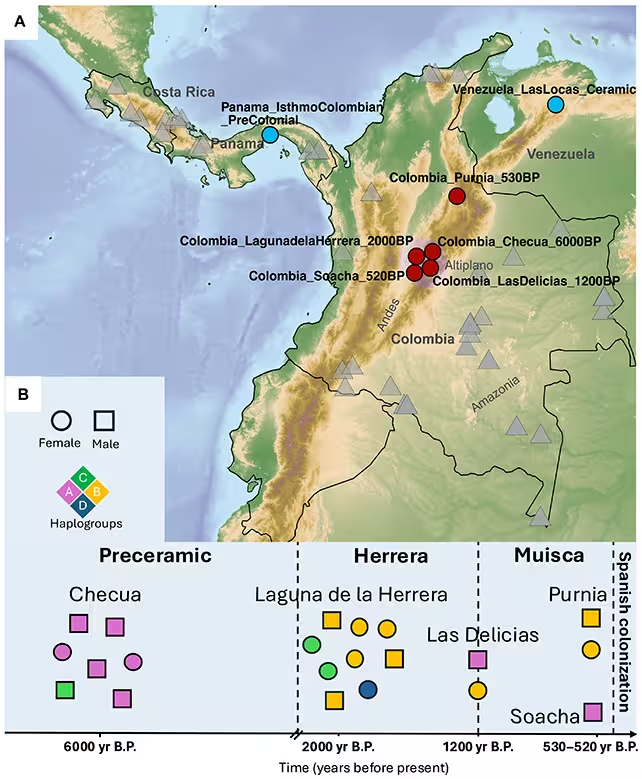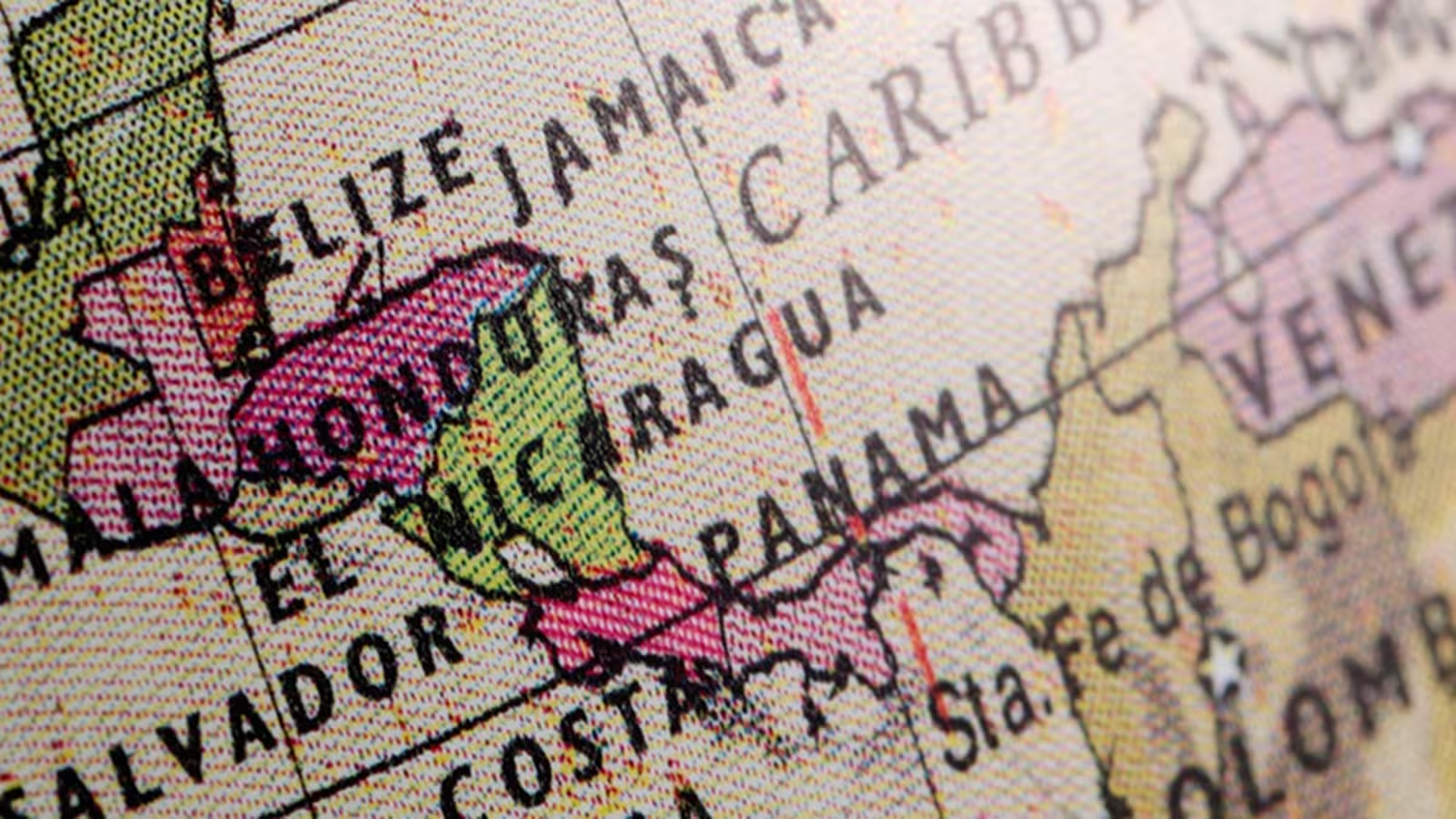4 Minutes
Introduction: Colombia’s Role in Early Human Migration
Colombia occupies a geographically vital position in the history of Homo sapiens, serving as a passageway for the prehistoric migration from Central America into the South American continent over 14,500 years ago. This land bridge has long sparked scientific interest in how ancient populations settled, adapted, and evolved across the region. Now, a groundbreaking genetic study reveals the existence of a previously unidentified population—an enigmatic group that once flourished in central Colombia, yet left no trace in today’s genomes.
Genomic Investigation: Tracing the Past Through Ancient DNA
In a comprehensive international collaboration, researchers conducted detailed DNA analyses on 21 ancient human remains, meticulously selected from five archaeological sites across Colombia’s Altiplano plateau. Spanning approximately 6,000 years of human history, this genetic record allows scientists to reconstruct a timeline of population dynamics, migration, and cultural transformation.
The DNA evidence reveals a surprising discovery: among the region’s earliest known settlers was a distinct group whose genetic signatures are entirely absent in any modern Colombian or neighboring populations. Their unique ancestry suggests they played a prominent role in the peopling of South America—before disappearing entirely, their genes never passed on to future communities.
Expert Insights Into the Ancient Disappearance
“We couldn’t find descendants of these early hunter-gatherers of the Colombian high plains—the genes were not passed on,” explains Kim-Louise Krettek, anthropologist at the University of Tübingen. “That means in the area around Bogotá there was a complete exchange of the population.” Geneticists underline that such a complete genetic turnover is rare within South America, raising profound questions about this ancient society’s fate.
Population Shifts and Cultural Transitions
Genetic sequencing pinpoints that around 6,000 years ago, this original hunter-gatherer society thrived in the uplands of central Colombia. However, by approximately 2,000 years ago, a new community—with entirely different genetic roots—had taken their place. These later inhabitants most likely spoke Chibchan languages and show clear genetic connections with groups from lower Central America, in stark contrast to their predecessors.

From Foraging to Farming
This demographic shift is mirrored by a major cultural transformation: the original hunter-gatherers gave way to a population engaged in sophisticated agriculture and pottery-making, a legacy evident in surviving artifacts. This population continuity lasted until the arrival of European settlers in the 16th century, further shaping the genetic landscape of modern Colombia.
Andrea Casas-Vargas, a geneticist at the National University of Colombia, notes, “The complete disappearance of the original population’s genetic traces is unusual, especially in South America.” Researchers currently refrain from speculation on the causes, but possibilities include conflict, disease, or largescale displacement. This mystery invites future archaeological and genetic investigation.
Broader Implications: Rethinking South American Prehistory
The discovery not only enriches our understanding of Colombia’s pre-Columbian history but also highlights the complex web of ancient human migration across the Americas. Earlier studies have indicated that indigenous ancestry in this region could be more diverse than previously believed—with genetic connections spanning as far as Australia, emphasizing the global importance of South America as a crossroads of ancient humanity.
Colombia's strategic location as a land bridge makes it a focal point for reconstructing early human dispersal into South America. These newly published ancient genomes—the first of their kind from Colombia—are expected to inform future interdisciplinary research and challenge established narratives about the peopling of the Americas.
Anthropologist Cosimo Posth from the University of Tübingen adds, “These are the first ancient human genomes from Colombia ever to be published,” underscoring the milestone contribution of this study.
Conclusion
The identification of a lost ancient population in Colombia marks a significant milestone in the field of paleogenomics and South American archaeology. While many questions remain about their sudden disappearance, this research highlights the extraordinary diversity and dynamism of early human migration. As DNA technology advances and more ancient remains are analyzed, Colombia is poised to unlock even deeper secrets about the earliest Americans—reshaping our global understanding of prehistoric human journeys and cultural evolution.
Source: doi



Comments